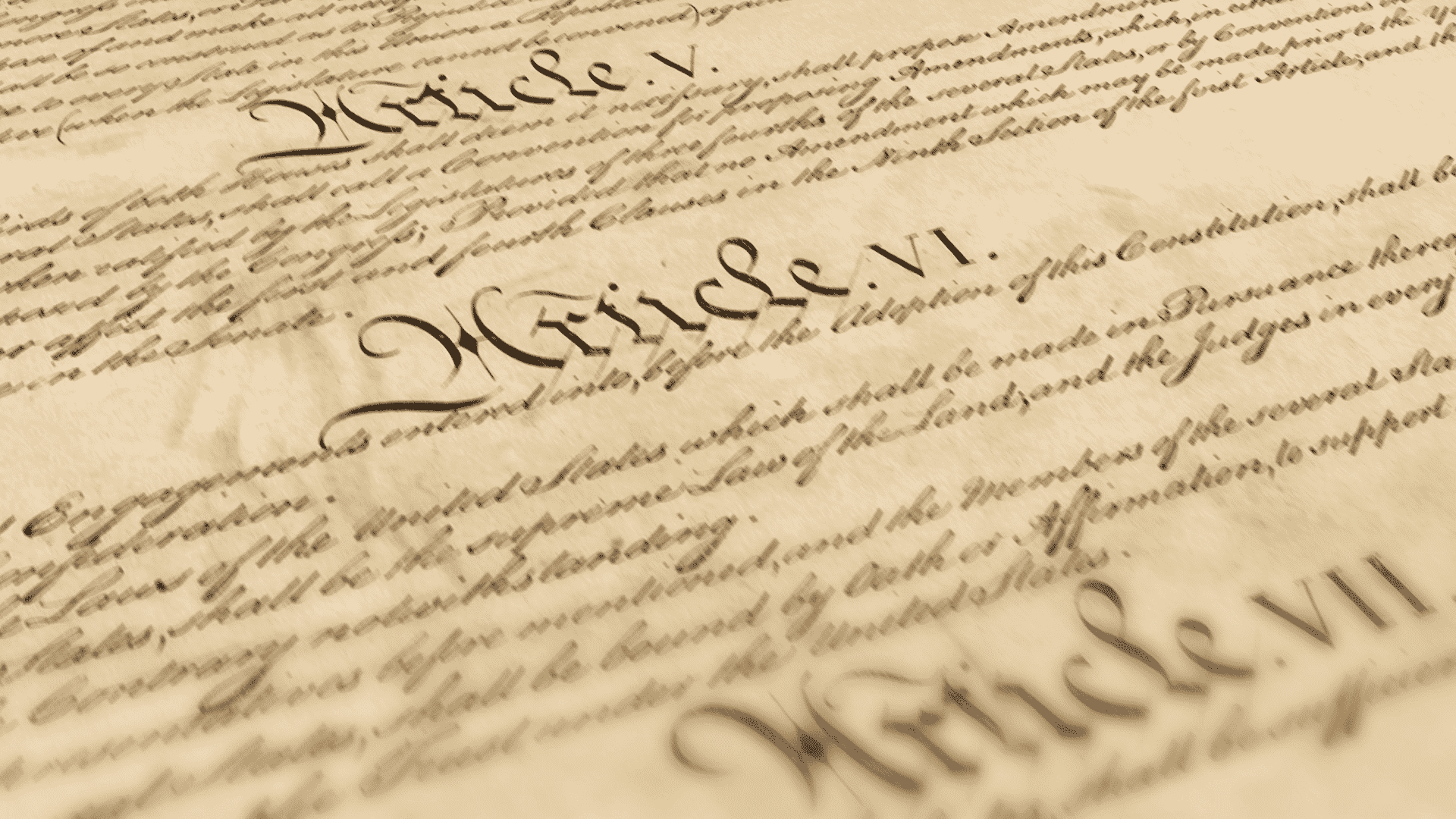When people tell you that “federal law is ALWAYS supreme” – they’re not just wrong, they get the Supremacy Clause of the Constitution almost completely backwards.
Article VI, Paragraph 2 is one of the most twisted and abused parts of the Constitution. It reads:
This Constitution, and the Laws of the United States which shall be made in Pursuance thereof; and all Treaties made, or which shall be made, under the Authority of the United States, shall be the supreme Law of the Land; and the Judges in every State shall be bound thereby, any Thing in the Constitution or Laws of any State to the Contrary notwithstanding.
Most people tend to completely ignore three essential words – the qualifier – “in Pursuance thereof.”
As Mike Maharrey notes, The clause does not read, “This Constitution…and any old act Congress decides to pass…shall be the supreme law of the land.”
Despite that fact, almost everyone today treats it that way, including Cornell Law School, which tells us that the Supremacy Clause “establishes that the federal constitution, and federal law generally, take precedence over state laws, and even state constitutions.”
This runs totally counter to what all the Federalists supporters of the Constitution told us about the clause. Even Alexander Hamilton, here in Federalist 33:
“The clause which declares the supremacy of the laws of the Union, like the one we have just before considered, only declares a truth, which flows immediately and necessarily from the institution of a federal government. It will not, I presume, have escaped observation, that it EXPRESSLY confines this supremacy to laws made PURSUANT TO THE CONSTITUTION” [all caps in original]
In the North Carolina Ratifying Convention, Willam Davie held the same view. He said that federal laws is supreme “only in cases consistent with the powers specially granted, and not in usurpations.”
Continuing that same debate, future Supreme Court Justice James Iredell agreed:
“Then when the Congress passes a law consistent with the Constitution, it is to be binding on the people. If Congress under pretence of executing one power, should in fact usurp another, they will violate the Constitution.”
North Carolina Gov. Samuel Johnston emphasized these same points – that only those acts made “in pursuance” of the Constitution would be supreme – everything else would fail to rise to the level of “law.”
“Every law consistent with the Constitution, will have been made in pursuance of the powers granted by it. Every usurpation or law repugnant to it, cannot have been made in pursuance of its powers. The latter will be nugatory and void.”
Usurpation. Nugatory. Void.
These are strong statements – a perspective almost totally forgotten today.
An act of usurpation was, to the founders, essentially, an act of theft by government, stealing power from the sovereign people of the several states. And when power is stolen, it’s not valid law – it’s nugatory. Or void.
St. George Tucker described the supremacy clause with this perspective in mind:
“That a law limited to such objects as may be authorized by the constitution, would, under the true construction of this clause, be the supreme law of the land; but a law not limited to those objects, or not made pursuant to the constitution, would not be the supreme law of the land, but an act of usurpation, and consequently void.”
But acts of usurpation – while void according to the constitution – don’t become void in practice and effect by merely saying so. And even Alexander Hamilton recognized that the people would have to step up to get that result.
“But it will not follow from this doctrine that acts of the large society which are NOT PURSUANT to its constitutional powers, but which are invasions of the residuary authorities of the smaller societies, will become the supreme law of the land. These will be merely acts of usurpation, and will deserve to be treated as such.”
With this understanding, most people miss the two primary purposes the Supremacy Clause
- To ensure the supremacy of the constitution – not just anything the feds do
- To draw a line around the limits of federal power
If you consider this in relation to the foundational structure of the Constitution being one of delegated and reserved powers, things are even more clear. Writing in Federalist 45, James Madison explained that “The powers delegated by the proposed Constitution to the federal government are few and defined. Those which are to remain in the State governments are numerous and indefinite”
With only about 30 powers delegated to the federal government throughout the constitution – and everything else reserved to the states, the notion that federal law “is always supreme” gets things almost completely backwards.
In most spheres of action, it’s actually “state law is always supreme,” and federal supremacy shouldn’t even be a question.
That’s how John Taylor of Caroline summed it all up:
“The United States have no authority, except that which is given by the constitution. Both the laws and treaties to be supreme must, therefore, be made in conformity with the powers bestowed, limited and reserved by the constitution, and by these we must determine whether a law or a treaty has been constitutionally made, before the question of its supremacy can occur.”




